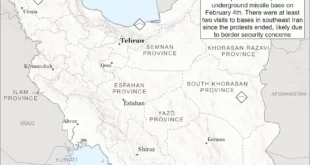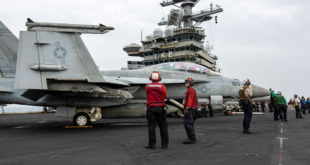 TEHRAN (FNA)- Taliban insurgents pulled some 50 passengers off a bus in southern Afghanistan and beheaded as many as 30 of them after accusing them of being soldiers traveling in civilian clothes, Afghan officials in the region announced on Sunday.
TEHRAN (FNA)- Taliban insurgents pulled some 50 passengers off a bus in southern Afghanistan and beheaded as many as 30 of them after accusing them of being soldiers traveling in civilian clothes, Afghan officials in the region announced on Sunday.
The police chief of Kandahar Province, where the attack occurred, said that of six bodies retrieved so far, all had been beheaded, mutilated and dumped. The police had received information that 24 others had been killed but had yet to find the bodies, the police chief, General Matiullah Qati, said.
The attack occurred Thursday on the main road running from the southern city of Kandahar to the western town of Herat, Qati said. It took place in Maiwand District, which is known as an area with a significant Taliban presence, where attacks on military convoys are frequent. It is also the main road for British and Afghan army troops traveling to Helmand Province, where the insurgency is the strongest in the country.
The attack follows a pattern of intimidation and brutality that Taliban insurgents have pursued, spreading terror in an effort to undermine support for the Afghan government.
A Taliban spokesman, Qari Yousuf Ahmadi, confirmed Sunday that the group was responsible for the killings and said that 27 passengers had been taken from a bus three days earlier and killed after appearing before a Taliban court.
“We discovered solid proof and documents that they were with the Afghan National Army, and also we had solid information that they were going to Lashkar Gah to help the army,” he said by telephone, referring to the capital of Helmand Province.
He said the Taliban had called the men’s families to announce that they had been caught and that their throats would be cut.
Afghan officials angrily denied that the passengers were soldiers or police officers and said that they were all men going west to Iran to find work. Thousands of Afghans travel every year to neighboring Iran to seek work, via the city of Herat.
“This is a very cruel act carried out by the Taliban,” said Gulab Mangal, the governor of Helmand Province. “We condemn this crime and we request that human rights organizations investigate thoroughly.”
The governor also denied the Taliban’s assertion that the men had been traveling to Lashkar Gah to join his administration and work to fight the Taliban insurgency.
“I completely reject this,” he said in a telephone interview from Lashkar Gah. “It is a total lie.”
“They were actually going to Herat, and from Herat they were going to Iran to work,” he said. “They were all civilian and were from different provinces. They were just going there to get work.”
The Afghan military spokesman, General Zaher Azimi, told The Associated Press that the men could not have been soldiers because the army always traveled in military convoys or by air.
The Taliban had also tried to stop another bus on Thursday as it passed through Maiwand District, the police chief said. It did not stop, but the Taliban gunmen opened fire on it, killing a child and wounding a man inside.
The passengers who were beheaded were on a second bus that was stopped; the 50 people on board were taken off and marched away, the police chief said. Ten were released with the bus a day later, but 40 men were still unaccounted for, he said.
Despite the intense wave of terrorism, abduction and massacre of the Afghan people by the Taliban, the US-led coalition troops and western capitals have voiced deep interest in attending negotiations with the Taliban.
Iranian Foreign Minister Manouchehr Mottaki warned the West on Sunday not to push for talks with the Taliban militia.
“Today, the whole world knows about the strategic failure of foreign forces in Afghanistan and we advise them not to try a new failure,” Foreign Minister Manouchehr Mottaki told a news conference.
“We advise them to think about the consequences of the talks (with the Taliban) which are taking place in the region and in Europe and avoid being bitten in the same spot twice,” Mottaki said, citing a Persian proverb.
Last month, Afghan government representatives met Taliban leaders in the Saudi holy city of Mecca for talks on ending the insurgency that has plagued Afghanistan ever since the militia was ousted from power in a US-led invasion seven years ago, the Saudi-owned daily Asharq Al-Awsat reported.
Several Western countries have expressed support for negotiations with the terrorist group, putting a big question mark in front of the West’s allegations about global campaign against terrorism.
“The West should not think that they can confine extremism to Afghanistan, Pakistan and central Asia,” Mottaki said, warning that extremism would one day also reach Europe and the West.
 Eurasia Press & News
Eurasia Press & News



